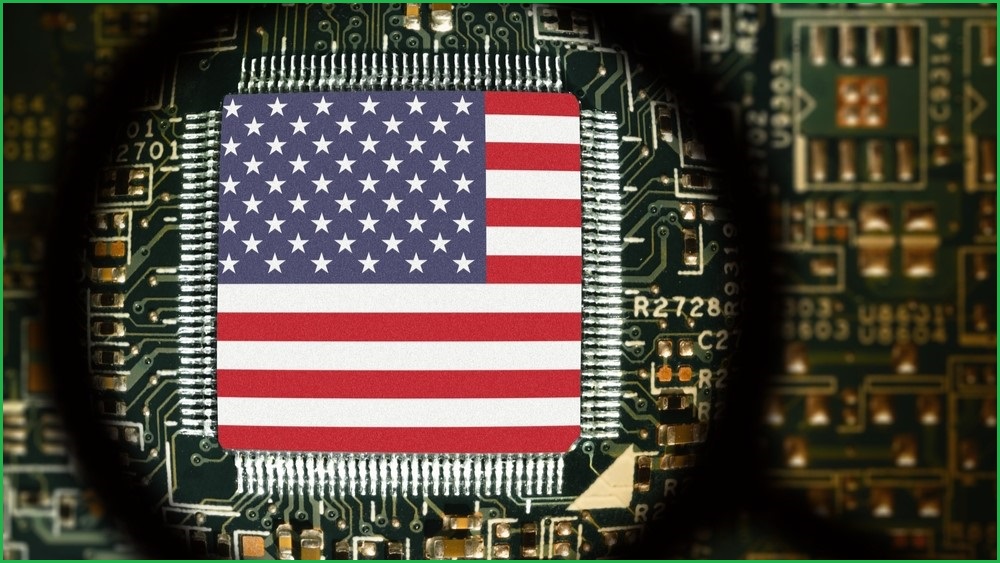The United States has announced new restrictions on the export of advanced artificial intelligence chips, effectively banning shipments to adversary nations such as China, Russia, and Iran, but allowing access to close allies like Australia.
Announced only one week before the scheduled inauguration of incoming US president Donald Trump — who could still scrap the plan — the outgoing Biden administration declared new rules aimed at streamlining and clarifying the export of advanced graphics processing units (GPUs).
Though conventionally known for their role in building souped-up gaming computers, recent years have seen GPUs become essential for operating modern AI systems.
The new rules will strengthen restrictions on the export of GPUs, such as those from US-based leading chipmaker Nvidia, in a bid to “enhance US national security and economic strength”, the White House said on Monday.
“It is essential that we do not offshore this critical technology and that the world’s AI runs on American rails.”
Nvidia vice president Ned Finkle dissented the upcoming restrictions, arguing they threatened to “derail innovation and economic growth worldwide”.
“By attempting to rig market outcomes and stifle competition — the lifeblood of innovation — the Biden administration’s new rule threatens to squander America’s hard-won technological advantage,” Finkle wrote on Nvidia’s website.
The new rules have a 120-day comment period allowing for industry comment, and for the Trump administration to determine whether or not they take effect.
Three tiers of AI trade
The new restrictions, called the Interim Final Rule on Artificial Intelligence Diffusion, will effectively divide nations into three separate tiers, as reported by Reuters.
Eighteen countries, including the UK, Australia, and Japan, will be altogether exempt from any caps on receiving advanced GPUs.
The White House noted these exemptions would enable jurisdictions with technology ecosystems “aligned with the national security and policy interests of the United States” to benefit from seamless large-scale purchases.
Meanwhile, some 120 countries including Israel, the United Arab Emirates, and Singapore will face strict licensing limits which effectively cap the number of GPUs they can receive to the equivalent of 50,000 advanced chips per country.
“This cap ensures that US technology is available to service foreign governments, healthcare providers, and other local businesses,” read a White House statement.
Finally, countries under arms embargoes such as Russia, China, and Iran, will be entirely barred from receiving advanced AI chips.
“In the wrong hands, powerful AI systems have the potential to exacerbate significant national security risks, including by enabling the development of weapons of mass destruction, supporting powerful offensive cyber operations, and aiding human rights abuses, such as mass surveillance,” wrote the White House.
Reuters further explained that when operating globally, US-based providers will be permitted to deploy only 50 per cent of their AI computing power outside of the US.
Outside of the 18 permitted “Tier 1” countries, this figure falls to 25 per cent and will be limited to seven per cent per country.
Meanwhile, orders with a computation power equal to roughly 1,700 advanced GPUs will not count against national chip caps or require a license, with the White House noting the “overwhelming majority” of international orders from universities, medical institutions, and research organisations fall under these limits.
China will take ‘necessary measures’
On Monday, China’s commerce ministry expressed its opposition to the new control measures, with local media reporting the ministry vowed to take “necessary measures” to protect China’s legitimate rights and interests.
A spokesperson for the ministry noted the US measures would further tighten export controls on AI chips and create obstacles for third parties engaging in “normal trade” with China.
The rules are set to arrive during a time where China is believed to lead in around 90 per cent of critical technology research, though the US has maintained its superiority in the AI field of natural language processing.
The rules mark the beginning of an expected wave of tariffs and trade restrictions under the forthcoming Trump administration.










